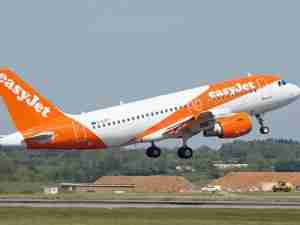Though India's economic reforms coupled with the rule of law and adequate IPR safeguards were praised at the Hannover Industrial Fair, held from April 24 to 28, German corporate executives urged India to build a viable infrastructure and improve the distribution of goods in the country.
Indian Prime Minister Manmohan Singh, who came personally to inaugurate India's 'partner country' participation at the Hannover show, assured his hosts that he would accelerate the development of a modern infrastructure.
'In the past, India did not do much to create a viable infrastructure. But we are committed now to develop a modern infrastructure backed by a modern logistics system to support the country's economic development,' Kamal Nath, Indian Commerce Minister, told this correspondent.
Both Prime Minister Singh and Kamal Nath urged German companies to also invest in India's infrastructure. They pointed out that the management and development of Mumbai and Delhi airports had been given to two consortia. One consortium includes the FRAPORT, which manages the Frankfurt airport, and the other one a South African agency.
Even though India hogged the limelight at the show because of its 'partner country' status, comparisons with China became inevitable. German businesspeople, familiar with the two Asian giants, said India's advantages over China were being blunted by the lack of modern infrastructure. 'India's projected 8 percent economic growth is unsustainable in the long term without a well-functioning modern infrastructure,' said Klaus Rauschenbach, a German consultant with an office near Frankfurt am Main
Kingfisher Airlines Eyes US Market
India's private carrier Kingfisher Airlines signed an agreement with Airbus for the purchase of five A340-500 jumbo aircraft for delivery in 2008.
Vijay Mallya, chairman of the UB Group which owns Kingfisher Airlines, and Gustav Humbert, the Airbus president and CEO, signed the agreement at Hannover in the presence of Indian Prime Minister Singh, German Chancellor Angela Merkel and Thomas Enders, the CEO of EADS, the Airbus parent company.
Mallya told this correspondent that the new planes, powered by Rolls-Royce Trent 500 engines, run economically with a 20 percent less fuel consumption besides having an excellent range and payload capability.
Kingfisher, which started operations only a year ago, has set its sights on the US market; however, it must surmount an Indian aviation regulation requiring private airlines to first complete five years of domestic flying before they can be permitted to fly overseas. Aviation analysts say Kingfisher can circumvent this regulation by tying up with a US based airline - or buying one of the financially-battered US airlines facing bankruptcy - which, under the 'open skies' agreement between the US and India, could fly to and from India under the Kingfisher banner. Mallya has already floated an airline company in America under the name Kingfisher International Inc.
Mallya hinted that the new long-range planes would be used for the Bangalore-San Francisco and the Mumbai-New York routes, adding that cargo will play a 'very important role' for his airline. 'We will, initially, transport cargo in the belly of the aircraft but other options will also be looked into as we progress.' Apparently, the 'other options' mean that the airline could also deploy all-cargo freighters as the cargo business takes off.










